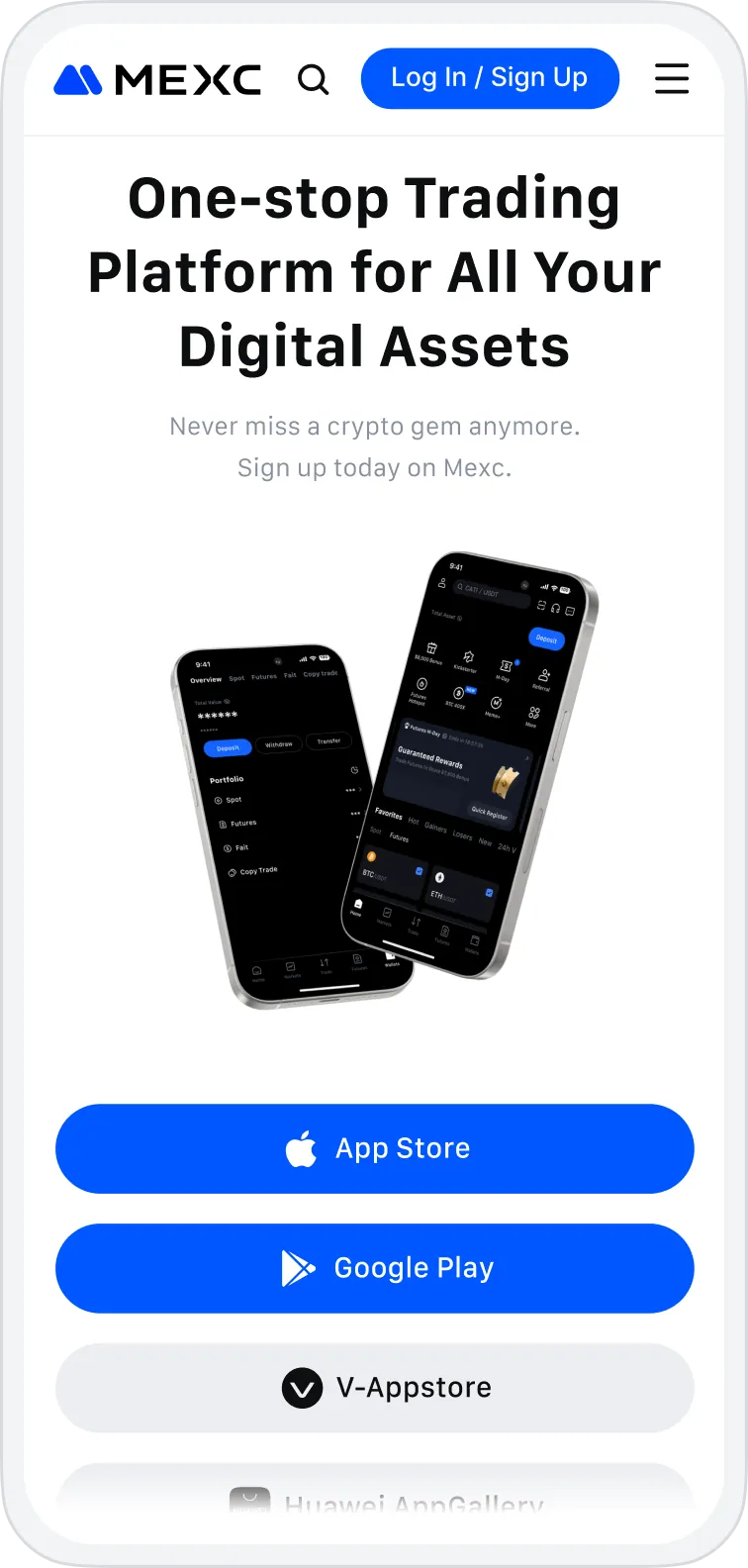
Jupiter Price(JUP)
Jupiter Price(JUP)
1 JUP to USD Live Price:
Jupiter Price Today
The live Jupiter (JUP) price today is $ 0.1944, with a 4.47% change over the past 24 hours. The current JUP to USD conversion rate is $ 0.1944 per JUP.
Jupiter currently ranks #75 by market capitalization at $ 630.61M, with a circulating supply of 3.24B JUP. During the last 24 hours, JUP traded between $ 0.1943 (low) and $ 0.2144 (high), reflecting market activity. Its all-time high stands at $ 2.0433053112987576, while the all-time low was $ 0.13003047620648273.
In short-term performance, JUP moved -1.62% in the last hour and -1.72% over the past 7 days. Over the past day, total trading volume reached $ 757.27K.
Jupiter (JUP) Market Information
No.75
46.34%
0.02%
SOL
The current Market Cap of Jupiter is $ 630.61M, with a 24-hour trading volume of $ 757.27K. The circulating supply of JUP is 3.24B, with a total supply of 6863982817.058138. Its Fully Diluted Valuation (FDV) is $ 1.36B.
Jupiter Price History USD
-1.62%
-4.47%
-1.72%
-1.72%
Jupiter (JUP) Price History USD
Track the price changes of Jupiter for today, 30 days, 60 days, and 90 days:
| Period | Change (USD) | Change (%) |
|---|---|---|
| Today | $ -0.009087 | -4.47% |
| 30 Days | $ +0.0038 | +1.99% |
| 60 Days | $ -0.0556 | -22.24% |
| 90 Days | $ -0.201 | -50.84% |
Today, JUP recorded a change of $ -0.009087 (-4.47%), reflecting its latest market activity.
Over the past 30 days, the price shifted by $ +0.0038 (+1.99%), showing the token's short-term performance.
Expanding the view to 60 days, JUP saw a change of $ -0.0556 (-22.24%), giving a broader perspective on its performance.
Looking at the 90-day trend, the price moved by $ -0.201 (-50.84%), offering insight into the token's long-term trajectory.
Want to unlock the all-time price history and price movements of Jupiter (JUP)?
Check out the Jupiter Price History page now.
AI Analysis for Jupiter
AI-driven insights that analyze Jupiter latest price movements, trading volume trends, and market sentiment indicators, delivering real-time updates to identify trading opportunities and support informed decision-making.
What factors influence Jupiter's prices?
1. Market sentiment and overall crypto market trends
2. Jupiter platform adoption and trading volume on Solana DEX
3. Token utility and staking rewards
4. Solana ecosystem performance and network activity
5. Regulatory developments affecting DeFi
6. Competition from other DEX aggregators
7. Technical developments and platform updates
8. Liquidity provision incentives
9. Broader DeFi sector performance
10. Investor speculation and trading patterns
These factors interact to determine JUP's market value through supply and demand dynamics.
Why do people want to know Jupiter's price today?
Price Prediction for Jupiter
In 2040, the price of Jupiter could potentially see a growth of 0.00%. It could reach a trading price of $ --.
For real-time scenario projections and a more personalized analysis, users can utilize MEXC's Price Prediction Tool and AI Market Insights.
Want to know what price Jupiter will reach in 2026–2027? Visit our Price Prediction page for JUP price predictions for the years 2026–2027 by clicking Jupiter Price Prediction.
About Jupiter
Jupiter (JUP) is a decentralized blockchain platform that aims to provide a secure, scalable, and private network for building and deploying applications. The project's primary focus is to offer a platform where businesses and individuals can create their own blockchain applications with ease and efficiency. Jupiter's blockchain uses a proof-of-stake consensus mechanism and incorporates a native cryptocurrency, JUP, which is used to power the network and facilitate transactions within the ecosystem. The platform also supports the creation of decentralized applications (dApps) and smart contracts, making it a versatile tool for a variety of blockchain-based solutions.
How to buy & Invest Jupiter
Ready to get started with Jupiter? Buying JUP is quick and beginner-friendly on MEXC. You can start trading instantly once you have made your first purchase. To learn more, check out our full guide on how to buy Jupiter. Below is a quick 5-step overview to help you begin your Jupiter (JUP) Buying journey.
Sign Up for an Account and Complete KYC
Add USDT, USDC, or USDE to Your Wallet
Head to Spot Trading Page
Choose Your Tokens
Complete Your Purchase

What can you do with Jupiter
Owning Jupiter allows you to open more doors in terms of just buying and holding. You can trade BTC across hundreds of markets, earn passive rewards through flexible staking and savings products, or leverage professional trading tools to grow your assets. Whether you are a beginner or professional, experienced investor, MEXC makes it easy to maximize your crypto potential. Below are the top four ways you can make the most of your Bitcoin tokens
Trading with Extremely Low Fees on MEXC
Buying Jupiter (JUP) on MEXC means more value for your money. As one of the lowest-fee crypto platforms on the market, MEXC helps you reduce costs from your very first trade.
Check out MEXC's competitive trading fees
Furthermore, you can trade selected spot tokens with absolutely no fees via MEXC's Zero Fee Fest.
What is Jupiter (JUP)
Jupiter is the leading DeFi dApp on Solana, serves as Solana’s primary liquidity infrastructure, driving more than 80% of the total retail liquidity movement and seamlessly integrating with the majority of protocols within the Solana network.
Jupiter Resource
For a more in-depth understanding of Jupiter, consider exploring additional resources such as the whitepaper, official website, and other publications:
People Also Ask: Other Questions About Jupiter
Jupiter (JUP) Important Industry Updates
| Time (UTC+8) | Type | Information |
|---|---|---|
| 01-27 12:55:50 | Industry Updates | US Ethereum Spot ETF Ends 4-Day Net Outflow Streak with $117 Million Net Inflow |
| 01-27 09:28:11 | Industry Updates | Crypto Fear Index Rises to 29, Exits "Extreme Fear" Zone |
| 01-27 09:23:45 | Industry Updates | Spot silver returns to $110/oz, spot gold breaks through $5,070/oz |
| 01-26 23:16:49 | Industry Updates | U.S. Senate Reschedules CLARITY Act Review Meeting to This Thursday |
| 01-26 12:27:36 | Industry Updates | Bitcoin's gains for the month have been completely erased, falling approximately 10.9% from its monthly high |
| 01-26 07:56:31 | Industry Updates | In the past 12 hours, liquidations across the network totaled $583 million, primarily long positions |
Jupiter Hot News


Jupiter is Trading 30.05% Above Our Price Prediction for Jan 19, 2026

Hyperliquid ($HYPE) Leads Top Derivatives Projects by Social Activity
Explore More about Jupiter
Trade Jupiter (JUP) Markets on MEXC
Explore spot and futures markets, view live Jupiter price, volume, and trade directly.
More Cryptocurrencies to Explore
Top cryptocurrencies with market data available on MEXC
Disclaimer
Cryptocurrency prices are subject to high market risks and price volatility. You should invest in projects and products that you are familiar with and where you understand the risks involved. You should carefully consider your investment experience, financial situation, investment objectives and risk tolerance and consult an independent financial adviser prior to making any investment. This material should not be construed as financial advice. Past performance is not a reliable indicator of future performance. The value of your investment can go down as well as up, and you may not get back the amount you invested. You are solely responsible for your investment decisions. MEXC is not responsible for any losses you may incur. For more information, please refer to our Terms of Use and Risk Warning. Please also note that data relating to the above-mentioned cryptocurrency presented here (such as its current live price) are based on third party sources. They are presented to you on an “as is'' basis and for informational purposes only, without representation or warranty of any kind. Links provided to third-party sites are also not under MEXC’s control. MEXC is not responsible for the reliability and accuracy of such third-party sites and their contents.
JUP-to-USD Calculator
Amount
1 JUP = 0.1944 USD
